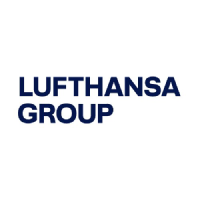Telefonica buys UK's O2 for £18bn
Mobile phone group O2 has agreed a takeover offer from Spanish telecom company Telefonica.
Telefonica is to pay £17.7bn ($31.6bn) for the firm in order to get a foothold in two of Europe's largest mobile phone markets - the UK and Germany.
Under the cash deal, Telefonica will pay 200 pence per share, a 22% premium on Friday's closing price of 164.25p.
O2 has been subject of bid interest recently, with Dutch firm KPN and Deutsche Telecom making approaches.
Telefonica, which has agreed a deal with the board of the UK company, said O2 would retain its existing brand and continue to be based in the UK.
Complementary business
"The combination with O2 is a logical step for Telefonica in pursuing its strategic goal of providing its shareholders with both growth and cash returns," Telefonica said in a statement.
O2 chief executive Peter Erskine added: "This transaction brings together two companies which are growing strongly with highly complementary geographical activities."
The two firm's said O2's business in the UK, Germany and Ireland would go well with Telefonica's businesses in Latin America and Spain.
Telefonica has a customer base of around 145 million and around 173,000 staff.
The group added that the deal would produce "economies of scale" - resulting in cost savings of an estimated 293m euros (£198.8m) a year by 2008.
'Good value'
Mr Erskine told BBC Radio 4's Today programme that he believed shareholders would accept the deal - which is likely to be completed early next year.
O2 shareholders, including many small investors who picked up stock at the time of the demerger from BT in 2001, will receive 200p a share if the deal goes through.
"It is very good for shareholder value. It's an all-cash offer. It's £2 a share, which is somewhere in the range of a 25% premium over the last three months," Mr Erskine said.
"It's also good for customers. They have no overlapping territory, so they will be able to offer our customers better roaming and better services around the world.
"Finally, it's very good for our people. Because there's no overlapping territories, we can really build on what we've got, as opposed to having to integrate and rationalise jobs."
Mobile phone group O2 has agreed a takeover offer from Spanish telecom company Telefonica.
Telefonica is to pay £17.7bn ($31.6bn) for the firm in order to get a foothold in two of Europe's largest mobile phone markets - the UK and Germany.
Under the cash deal, Telefonica will pay 200 pence per share, a 22% premium on Friday's closing price of 164.25p.
O2 has been subject of bid interest recently, with Dutch firm KPN and Deutsche Telecom making approaches.
Telefonica, which has agreed a deal with the board of the UK company, said O2 would retain its existing brand and continue to be based in the UK.
Complementary business
"The combination with O2 is a logical step for Telefonica in pursuing its strategic goal of providing its shareholders with both growth and cash returns," Telefonica said in a statement.
O2 chief executive Peter Erskine added: "This transaction brings together two companies which are growing strongly with highly complementary geographical activities."
The two firm's said O2's business in the UK, Germany and Ireland would go well with Telefonica's businesses in Latin America and Spain.
Telefonica has a customer base of around 145 million and around 173,000 staff.
The group added that the deal would produce "economies of scale" - resulting in cost savings of an estimated 293m euros (£198.8m) a year by 2008.
'Good value'
Mr Erskine told BBC Radio 4's Today programme that he believed shareholders would accept the deal - which is likely to be completed early next year.
O2 shareholders, including many small investors who picked up stock at the time of the demerger from BT in 2001, will receive 200p a share if the deal goes through.
"It is very good for shareholder value. It's an all-cash offer. It's £2 a share, which is somewhere in the range of a 25% premium over the last three months," Mr Erskine said.
"It's also good for customers. They have no overlapping territory, so they will be able to offer our customers better roaming and better services around the world.
"Finally, it's very good for our people. Because there's no overlapping territories, we can really build on what we've got, as opposed to having to integrate and rationalise jobs."
 Werbung
Werbung




















